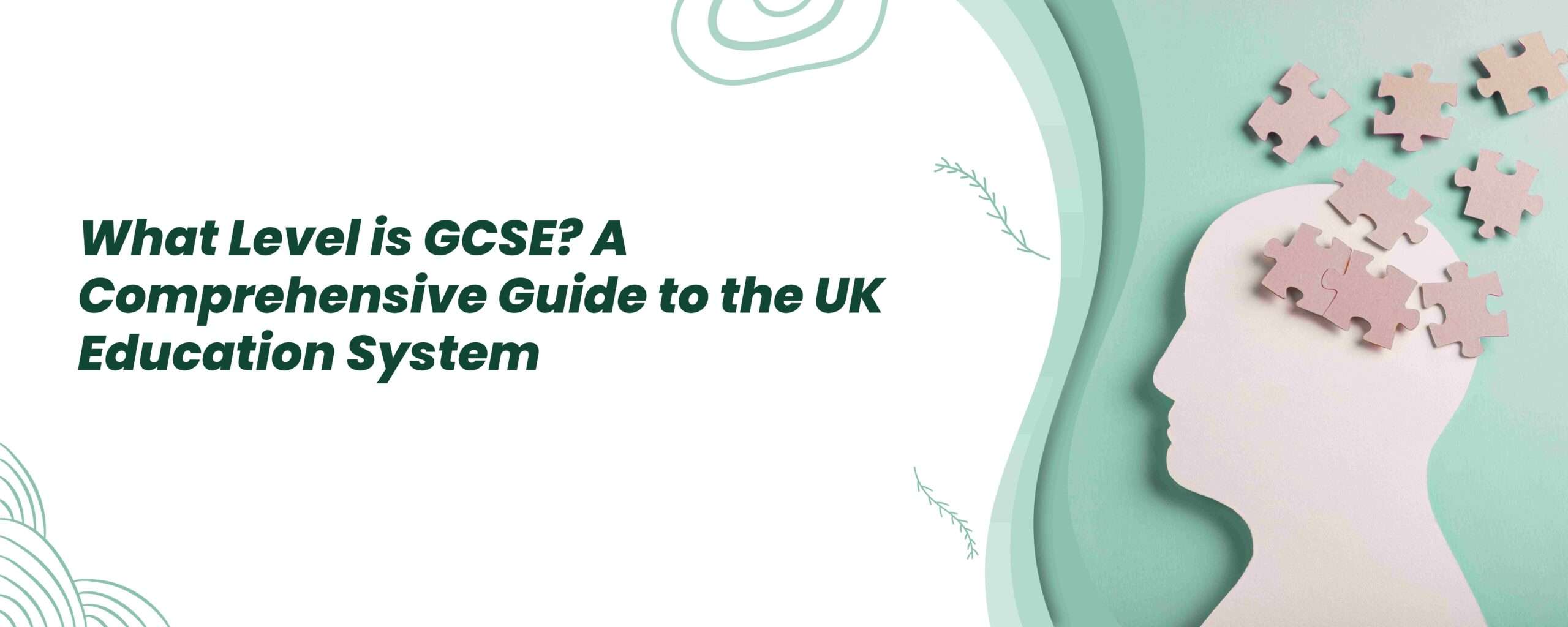What Level is GCSE? A Comprehensive Guide to the UK Education System.
Introduction
In the UK, the General Certificate of Secondary Education, or GCSE, is an essential academic credential. This article will provide you a thorough understanding if you’re a student, parent, or teacher attempting to comprehend the significance and level of GCSEs. The degree of GCSE credentials in relation to alternative educational frameworks, their subjects, grading scheme, and importance for future academic and professional prospects will all be covered in this article.
What is GCSE?
Students in England, Wales, and Northern Ireland are granted the General Certificate of Secondary Education (GCSE), which is normally taken at the conclusion of secondary school (Year 11, or about ages 15–16). GCSEs serve as a standard for academic proficiency and are essential for both higher education and the workforce.
What Level is GCSE?
GCSEs are categorized as Level 2 qualifications in the UK educational system. Nevertheless, depending on the mark received, several higher-tier GCSEs can be classified as Level 1 or Level 2. This is a summary:
- Level 1 GCSEs – Grades 3, 2, 1, or a U (unclassified)
- Level 2 GCSEs – Grades 9, 8, 7, 6, 5, and 4
For students aiming for further education, securing a Level 2 qualification (Grade 4 and above) is essential.
Comparison with Other Qualifications
To understand where GCSEs stand in the UK education system, let’s compare them with other qualifications:
| Qualification | Level | Age Group |
| Entry Level Certificate | Entry Level | Any |
| GCSE (Grades 4-9) | Level 2 | 14-16 |
| GCSE (Grades 1-3) | Level 1 | 14-16 |
| A-Levels | Level 3 | 16-18 |
| BTEC Level 2 | Level 2 | 14-16 |
| BTEC Level 3 | Level 3 | 16-18 |
| T-Levels | Level 3 | 16-18 |
| Apprenticeships | Level 2-7 | 16+ |
GCSE Subjects and Examination Structure
GCSEs cover a broad range of subjects. Some are compulsory, while others are optional, allowing students to choose subjects based on their interests and career aspirations.
Core Subjects (Mandatory)
- English Language & Literature
- Mathematics
- Science (Biology, Chemistry, Physics or Combined Science)
Optional Subjects
Students can select from a variety of subjects, including:
- History
- Geography
- Modern Foreign Languages (French, Spanish, German)
- Art & Design
- Computer Science
- Business Studies
- Music
- Drama
Examination and Assessment
GCSEs are assessed through:
- Written exams (majority of subjects)
- Coursework (some subjects like Art, Design & Technology)
- Practical assessments (Sciences, Drama, Physical Education)
The Grading System of GCSE
Since 2017, the traditional A*-G grading system was replaced by a 9-1 scale:
| New GCSE Grades | Old GCSE Grades | Description |
| 9 | A* | Exceptional Performance |
| 8 | A | Strong A grade |
| 7 | A | Standard A grade |
| 6 | B | Strong B grade |
| 5 | C | Strong pass (good for employment) |
| 4 | C | Standard pass (minimum for college entry) |
| 3 | D | Below standard pass |
| 2 | E | Lower than standard pass |
| 1 | F/G | Poor performance |
| U | U | Unclassified |
Importance of GCSEs
Higher Education Progression
A-Levels, BTECs, and other post-16 credentials are based on GCSEs. When admitting students, universities and colleges take into account their GCSE results, especially in English and mathematics.
Career Prospects
A minimum of five GCSEs at Grade 4 or above are required by many workplaces, particularly in math and English. GCSE performance is frequently taken into account when hiring in industries including healthcare, engineering, IT, and finance.
Apprenticeships & Vocational Training
Apprenticeships require GCSEs in core subjects, allowing students to gain practical skills while earning.
Resitting GCSEs
Students who do not pass English or Maths (Grade 4 or higher) must resit these subjects, as they are crucial for further education and career growth.
Conclusion
What is the GCSE level? A Complete Guide to the Educational System in the UK. GCSEs, which are normally taken at Level 2, are an essential component of the UK educational system. They act as a springboard for further study and employment prospects. Students can make more educated decisions regarding their futures if they are aware of their level, grade, and significance.
Students can open up a variety of academic and career pathways by performing well on their GCSEs, laying the groundwork for future success.







